![]() Josh Lanyon and Nicole Kimberling got together and came up with this unique post after I invited them to be joint guest bloggers on the site. I think Nikki has another career as an interviewer ahead of her.
Josh Lanyon and Nicole Kimberling got together and came up with this unique post after I invited them to be joint guest bloggers on the site. I think Nikki has another career as an interviewer ahead of her.
******************
NK-Today I’m having a conversation with Josh Lanyon about writing. Not about writing a specific book, series, character or product but about writing in general, as a creative effort, lifestyle and all that thrilling stuff mainly of interest to other writers. Hopefully you lovely readers will be able to stay awake, but if you start to nod off, just look at some of the pictures in the sidebar. That should wake you right up. And now, onto the topic at hand.
So, Josh, when you’re conceptualizing a story, what do you start with? A premise? A particular scene or emotional dynamic? Something else?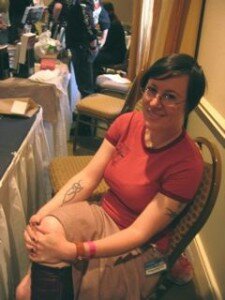
JL- I think it maybe it depends on whatever has inspired me. It’s not always a logical or rational process. Sometimes I’ll hear a piece of music or see a picture and I just…have to write something. It’s an emotional response but that doesn’t always translate to the same thing. Right now I’m very taken by the work of Victorian painter Atkinson Grimshaw. When I see his paintings, I want to write…but I can’t always define for myself what I want to write about. It’s a strong emotional reaction that tries to work itself out in a creative response.
This is probably not what you’re asking, though. Usually I begin with an emotional dynamic. Two guys who want and need different things, and the major obstacle to getting what each needs is the other guy — and their feelings for each other. Those are the easiest stories to write. It’s very clear cut. Other times it’s a little more analytical; I’ll deliberately explore a premise like infidelity or betrayal. Right now I’m plotting a couple of stories with anti-hero protags. Redemption, Absolution, these are concepts that intrigue me. I approach those stories more from an intellectual angle. The stories that come the easiest are the ones where entire scenes pop into my mind — I can barely write them down fast enough. The Adrien books always come to me in big scenes.
I saw Strange Fortune in scenes, but that was still hard to write — I think because that was a battle between my rational and emotional storytelling.
NK- Actually that first explanation was exactly what I was asking about. I think I personally write because of an anxiety that needs to be expressed by communicating–in other words the simple desire to communicate anything at all manifests as writing. Other people might paint or play music. I hesitate to use the words self-expression because that term conveys too much ego. When the feeling is very strong I almost never want to convey “myself” so much as to communicate “what I know about the world.” Does that difference make sense?
JL- Oh yeah. When I was much younger, I used to respond to that surge of creative adrenaline by running. Just…running. It was like seeing or hearing something beautiful and moving triggered such a strong response that I had to react — but had no outlet. Well, there was writing bad poetry, but we don’t need to reexamine that impulse. Or the horror it wrought.
NK-And speaking of painters, I really like Atkinson Grimshaw too, especially “Nightfall Down the Thames.” I used to have postcards of “Spirit of the Night” and “The Lady of Shallot” when I was younger and all about the pre-rafaelites.
Lady of Shallot” when I was younger and all about the pre-rafaelites.
JL-All those mysterious houses glimpsed from behind trees and high walls. Enigmatic moons drifting through rafters of clouds or paths of starlight across deep, unknowable waters. Something in his work triggers that storytelling instinct. Even now it’s hard to articulate — luckily I no longer have the need (or energy) to sprint down the street.
NK-When you’re writing do you hear the words as you’re writing? See pictures?
JL- I see it in pictures — for the most part. However my pictures have sound. I think this is because music has always been a huge part of my life. I actually stopped writing for a few years and focused solely on music. (Needless to say I wasn’t trying to earn a living at it.) Anyway, I think that’s why I’m very conscious of dialog, of the rhythms of speech, of the beats of silence and pauses, of tones and inflections.
NK–yes, the Blind Eye Books typesetter has noted the intense strength and rhythmic regularity of your prose. (It’s the kind of thing that typesetters notice more than anyone because they’re looking at the white space on the page, rather than being distracted by the information contained in the black areas.)
Do you think romance is a sort of story or a sort of character dynamic?
JL-Where the heck did you find these questions? Did you deliberately look up the hardest questions you could find?!
NK; Not at all. Honestly, these are just things I sit around thinking about. So?
JL-I think it’s both. I think that a romance is a specific type of story and requires an actual plot with believable conflict and satisfying resolution — it’s not just a story about two guys who fall in love and buy vertical blinds. Well, let me qualify that. It could be, but it takes one heck of a writer to pull that off, and even then there will be subtle conflict between these two guys as they try to build a life together and find the right window to hang their blinds.
But since I approach everything through the characters, for me it’s also a sort of character dynamic because it is within the nature of these characters that the seeds of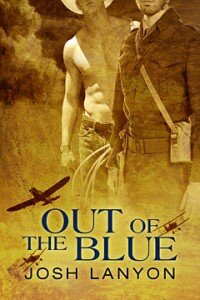 their conflict arise. We want the things we want — even need — because of who we are. Trying to control that, to reshape who we are is very difficult. And it’s that struggle between two people wanting different things — despite their attraction to each other — that is at the root of every romance I write.
their conflict arise. We want the things we want — even need — because of who we are. Trying to control that, to reshape who we are is very difficult. And it’s that struggle between two people wanting different things — despite their attraction to each other — that is at the root of every romance I write.
NK- Honestly, I don’t know much about romance, having more than once been described by my beloved wife as “the least romantic person on earth.” Sometimes I think romance is not so much a love story as a descriptor of the feeling of drama surrounding a love story. Because all those stories about medieval knights and things are also called romances and what they and the modern romance share is a sense of heightened reality that surrounds an idealistic kind of love. (I’m thinking of stories such as “Ivanhoe” here with its chivalry.)
JL- it can be that too. It’s one of those terms that we define differently depending on who we’re talking to. I know readers who believe it’s not a “romance” if it doesn’t have a happy ending. But if we’re defining romance in a purely traditional and literary sense, than a romance doesn’t necessarily need to have a happy ending — and, in fact, the “romance” (meaning the boy-loves-maiden part) may be the least important part of the story.
I think to qualify as romance in the m/m genre, a couple of things are necessary: a focus — regardless of sub-genre — on the romantic relationship of the main protagonist(s); a certain sensibility, i.e., word choices, tone, emotional nuance; an exploration of physical intimacy (though it can be subtle); and a hopeful or happy ending. I mean, there are exceptions to every rule, and sometimes the exceptions make for the most interesting stories.
NK-Do you think there’s such a thing as a “writing life?”
JL-Yes, and it’s extremely unhealthy.
Actually, I’m not sure I’m kidding. From a physical standpoint…it can be very damaging. Sitting at a computer all day? And I am at the computer pretty much twelve hours a day. My back hurts, my wrists and hands currently hurt all the time, and I don’t get nearly enough exercise.
Which leads to the other problem: I don’t get out enough. Way too much of my life is spent on-line talking to people about books and writing — usually my books and my writing. It’s a narrow focus, a narrow world view. Everything becomes centered on this little online romance writing community — the writers, reviewers, bloggers, readers….who said what about whom???…as though this were the world. As though this was all that mattered. More and more it seems unhealthy to me. You — I — start to take it all way too seriously.
At the same time, story-telling is important to all of us. Look at the billion dollar industries in our culture that revolve around story-telling: the movie industry, television, publishing. Storytelling is big business. As a culture and a society we place enormous (if unconscious) importance on storytelling. So it is important, but there’s a balance here — and more and more I’m struggling to find it.
 NK-One of the reasons that I keep my day job (which is cooking in a restaurant) is because I have a hard time with the loneliness of writing. I need those couple of days a week where I meet and interact with flesh and blood people whose names I actually know and faces I recognize and who smile at me when they see me on the street. I know lots of writers who do not necessarily need this– or rather that they need and want to tell stories more than they need and want to have a close-knit community. But what inspires me most to write at all are the idiosyncrasies of actual people. When I interact with people only online, what I interact with is a closely controlled persona. And because of the burden of self-consciousness, combined with the foolhardiness of not controlling what one might say on the world-wide media platform we call the internet, most people end up truncating what is truly beautiful or unique about themselves. Or the beauty of an individual might be inexpressible in text. Real human warmth is hard to convey and even harder to receive via words alone. Two people who are both very good at writing can sort of manage it. But if I want to also be friends with people who are not writers (and I do) I must leave my living room.
NK-One of the reasons that I keep my day job (which is cooking in a restaurant) is because I have a hard time with the loneliness of writing. I need those couple of days a week where I meet and interact with flesh and blood people whose names I actually know and faces I recognize and who smile at me when they see me on the street. I know lots of writers who do not necessarily need this– or rather that they need and want to tell stories more than they need and want to have a close-knit community. But what inspires me most to write at all are the idiosyncrasies of actual people. When I interact with people only online, what I interact with is a closely controlled persona. And because of the burden of self-consciousness, combined with the foolhardiness of not controlling what one might say on the world-wide media platform we call the internet, most people end up truncating what is truly beautiful or unique about themselves. Or the beauty of an individual might be inexpressible in text. Real human warmth is hard to convey and even harder to receive via words alone. Two people who are both very good at writing can sort of manage it. But if I want to also be friends with people who are not writers (and I do) I must leave my living room.
JL-There’s also the problem of having something to write about. I think this is why the work of young writers is often complicated and artificial. They don’t have a lot of real life experiences — or they haven’t had enough time or distance to process the experiences they are currently…er…experiencing. Ideally, a writer has something real to write about. It isn’t just, shouldn’t just be — in my opinion — stylistic curlycues about made-up people going through preposterous scenarios. It needs to be grounded in some emotional reality — even if it is about vampires or space pirates or art college students, and, ideally, have some point to make. It helps if you know something about life and people — and you get that by signing off the net and going out to interact with folks in the real world.
NK-And yet, as you say storytelling is our business and a great deal of that business takes place online. It IS very hard to find the balance. One thing I do know is that right now I see a lot of people mistaking advertising for conversation. They are not the same.
JL- No. They aren’t. And so many raw, new authors are startled to discover that most potential readers know the difference between a sales pitch and a dialog. But there’s a learning curve to all this. We all make some of these crude mistakes when we first start out. We don’t know better. We don’t know how wearied and jaded readers are with all the sales pitches and promo that came before, because we just got here. And maybe we’ve been reading twelve-year old advice on how to storm the Internet bastions by writing our own reviews on Amazon or spamming everyone in our address book or joining a discussion list by introducing ourselves as the author of the faboo new book X.
We all want to sell books, but it takes a while to build a core readership. It doesn’t happen in a week or even a year. Or at least it didn’t happen for me that quickly. And I think that impatience sometimes morphs into desperation. We are the instant gratification generation. We don’t know how to wait. This is something gardening teaches us. You can’t rush a garden. I like to look at my writing career as a garden. Occasionally a wild, out of control garden with dangerous creatures in the underbrush.
NK- What is your favorite way to research? Is there anything that gets you really inspired?
JL- I. Love. Research. But it’s such a danger because I’m so easily distracted, so quickly fascinated by…er…everything. So I’ll start out researching something very simple — very simple yes or no question: “Are there nightingales in India?” Which then leads me to reading about birds that are in India, listening to bird calls, reading legends about birds in India, reading about diseases spread by birds in India, what the government is doing about diseases spread by birds in India, what other vermin spread diseases in India, training pet rats to do tricks, a review of the movie Ben, Michael Jackson’s last hours…
And by the time I get back to the manuscript, I can’t remember why I thought a nightingale belonged in that scene anyway.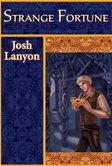
And, for the record, there are no nightingales in India proper, however there is the bulbul bird. I think I mention one in passing in Strange Fortune.
NK- Yeah, you did mention the bulbul. Probably the reason why you wanted to put a nightingale into Strange Fortune is that you put sound effects into almost all your scenes.
JL-It’s that music thing again. My moving pictures have a sound track.
NK- Agatha Christie reportedly said she did her best thinking while washing dishes. Is there anything like that for you?
JL- Gardening and driving. Safer to do my thinking in the garden though — though the plants may not entirely agree.
NK- Mine is folding laundry and doing huge, tedious prep cooking jobs that take more than 2 hours, like portioning pasta or chicken breast or rolling dozens of balls of dough. I am a very bad gardener.
JL-Ah, but I bet you’re a very good cook.
NK- God I hope so by now! I am a professional, after all. Okay, I’ve got one last question. I was thinking about this the other day and wanted a second opinion. I think that the process of writing fiction for an audience might consist of three separate skills that must be used simultaneously. I’ve broken it down thusly:
1. Expression– the generative stage in which the author has an idea and the desire to convey it. I’m not sure this stage can be necessarily learned or taught.
2. Communication– the writing part where the author conveys, in words, their ideas. Obviously this part must be learned somehow, so logically it’s a skill that can be further developed over time.
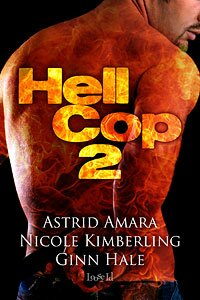 3. Entertainment– arranging the ideas and the writing in a dramatic way so that the story brings the reader some kind of pleasure. Again, I’m fairly certain that this can be learned and taught.
3. Entertainment– arranging the ideas and the writing in a dramatic way so that the story brings the reader some kind of pleasure. Again, I’m fairly certain that this can be learned and taught.
JL-Well, I would say that the desire to express one’s self, per se, is probably all part of the human condition, whether through scrawling graffiti on walls beneath the underpass or writing WAR AND PEACE. The desire or need to express one’s self specifically through the written word is, yeah…I think we’re born this way. Something our mothers ate — or drank — while we were gestating. You either have that need or you don’t.
Communication…hmmm. I think much of writing does boil down to craft and technique. It can be taught, it can be learned. But there are certain elements that I don’t think can — necessarily — be taught. Can you teach a sense of humor? Can you teach subtlety? Maybe you can. There are exercises for stimulating the imagination and for developing empathy, so…maybe you can, but I tend to think you’d have to have an aptitude for these things to even know that you needed to work on them. So I guess what I’m saying is aptitude isn’t enough; you have to hone your craft, but without aptitude you can only hone your craft so far. It’s kind of like Frankenstein’s monster. You can get all the parts lined up properly, anatomically correct, but still lack that spark of animation that makes the creature live.
Entertainment is partly instinct and partly learned. Some people just naturally have that dramatic sense, that comedic timing, that feel for romance. Some people don’t. But it’s something I think you develop by studying how it’s successfully done. Mostly it requires that you objectively observe and analyze how the top entertainers get the results they do without letting your own insecurities and resentments skew your perception. Writing is very hard work. I think a lot of times writers, knowing they can reach a modicum of success without killing themselves, choose not to do that work, not to develop those skills — but then feel resentful that they don’t get the attention and acclaim of the writers who do work their asses off. Plus, it’s just really hard to be clinical about your own work and your own weaknesses. But you have to do that if you want to be the best that you can be. Er, somebody cue the theme music.
What I want to know is, where are the guys in the hot tub? I’m waiting here in the cold with the hot towels.:) In my interviews there are always guys in the hot tub.
NK–What do you mean? Can’t you see them, they’re right over there, waving at you through the steam. But you and Josh can hang with the guys in the hot tub. I’ll just hang back over here near the bar.
JL –And here I always thought your interviews were so popular because of your incisive political insights
I have a question for Nikki – Do you now have cable television? Your rabbit ears probably don’t work anymore with the new digital technology in the US.:)
NK—Ah, but I get all my TV from Canada and they haven’t switched over yet so I’m doing just fine with my rabbit ears, thanks. Probably I’ll have to get one of those boxes that switch analog to digital if I want to watch the Vancouver Olympics, though, to keep my rabbit ears working.
My question for Josh is: Is it true that Strange Fortune is over 100K?
JL– NO. but it’s the longest thing I’ve ever written on my own. It’s a whopping 86K or so.
If Nikki ever gets tired of cooking for other people maybe she could take on the job of interviewing them – she did a great job with Josh which will make it very hard for me to get him to agree to another interview.*g* BTW Josh, you do remember we have a date for Adrien’s Last Stand? (That’s what I’m calling AE No.5)
JL_ Thanks. I think!*g*


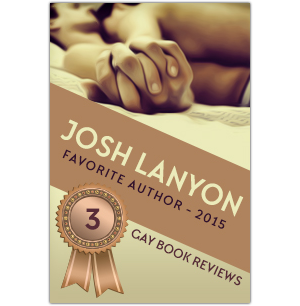






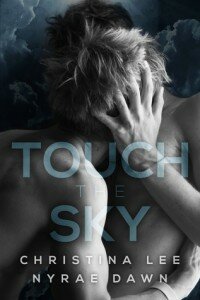





tibia char,
Thanks for coming by to join the party, Marcela!
Thank you, I’ve learned a lot by reading both the reviews and the comments of the authors. It’s incredibly reassuring when you are first setting things down on paper.
Great interview, thank you! It gave me a lot to think about. I just started writing seriously, mainly because when I was younger the stories sounded fake. It’s work but I love it.
You know, sometimes I think that people just want to cry more than laugh…
And also some people just have no sense of humor at all.
Then there are those weird individuals who laugh a lot at other people’s jokes but never ever tell their own jokes. Those are the weirdest folk of all.
It’s a shame that comedy books aren’t taken more seriously, because comedy can tell the truth about the world in just as profound a way as an angst-laden tragedy. Maybe I’m someone who has more of a view that life is essentially absurd rather than tragic.
I think all of the fiction books on my top ten list are comedies, like The Hitch Hiker’s Guide the Galaxy and Three Men in a Boat (which sadly is not a story about three guys living in a menage on a house boat.)
I completely agree JFM. I would even go so far as to say that comedy works better than tragedy because people remember and repeat jokes and good lines in a viral way. Especially jokes that are funny because they are true.
I mean, there’s a reason that John Stewart is considered one of the most influential men in America right now.
Great interview! I’m going to “star” it in my Google Reader so I can find it again quickly, because I know I’ll want to read it a couple more times.
~
Loads of great advice, especially I think the part about being patient. I wasted lots of years being too shy to even try writing, so since I did start I’ve been feeling like I’m making up for lost time and I’ve written a lot in the last few years. But I’m consciously making myself slow down now and letting things take as long as they need to take.
JFM, you’ve already learned one of the hardest lessons — that things take however long they take (so plan accordingly). It’s easy to get panicked into thinking I-have-to-get-something-out-there-now-while-publishers-are-buying, but the truth is, taking time to do the best possible work is the best guarantee of a sale — and a healthy writing career.
Thanks, Kris. I think that if I hadn’t formed all these online friendships and connections, I’d have a much harder time staying chained to my desk. These human connections — even though they come through the internet and technology — have been some of the most significant of my life. It’s a weird thought.
I spend a lot of time on the computer, whether I’m proofreading, editing, or just reading. My volunteer jobs really help me as far as getting out of the house. I agree about the need for socialization to avoid being caught up solely in the little world of e-publishing. That was a very thought-provoking discussion.
The internet is a blessing and a curse for writers, that’s for sure. It’s weird sometimes to even try to remember what my life was like before I spent most of every day on a computer!
Thank you, Liriel, for joining in the discussion. I always think the comment sections are the best part of any blog. *g*
Thanks, gaycrow. I’m an enthusiastic though not always successful gardener — mostly because to be a really good gardener I would need to spend a lot more time in my garden.
I do think gardening is its own philosophy.
I also think you’re going to really enjoy Grimshaw’s work.
You mad scientist girls are always excellent company when you’re not taking over the world. Sometimes even when you are.
Very insightful dialogue between you two.
I found it particularly interesting to read another writer describe that rush of energy that comes with inspiration and how hard it is to just sit still when your whole body is coursing with creative excitement… but of course you have to if your going to get the words down on paper.
Nikki, the sad thing is that I actually did use the thesaurus, but couldn’t find a word that fit as well and that still seemed like a word people actually, you know, use. See I told you– I haz no writing skilz.
Great conversation! I’m a newly published writer and I find that the whole writing process helps fill a hole in my creative self…even though I do music, quilting, scrapbooking, etc. Although my quilting and scrapping have fallen by the wayside lately as I’m too busy reading and writing! I’ve come into writing when I’m middle aged, which is probably wierd…I write a lot in my professional job as a market intelligence analyst, so I’ve been writing a long time. It’s a great new outlet for me, and my second story was just picked up by Dreamspinner!
Congratulations, Jen. That’s terrific. I don’t think there’s anything like that very first sale.
Very interesting questions and answers! Thank you Nikki and Josh
And I do love the Grimshaw paintings, I never heard of him and will look them up for sure. They are beautiful.
Thanks, I’m very pleased at the idea I’ve introduced a bunch of folks to Grimshaw’s work!
Fascinating interview, Josh and Nikki. Interesting insight into how a writer’s mind works. I’m in awe of you both who write so well– a skill I’ve certainly never had (in fact it took me 10 minutes just to compose this post, mostly because I was agonizing over whether it was ok to use the word ‘fascinating’ again since the post above used it).
*
Josh, I love the anti-hero protags, so I’m looking forward to the new stories you’re plotting.
Thanks, Nichem!
Oh, I believe the rule is that you can repeat a word that someone else used but not a word that YOU used in anything previous to three posts earlier.
(Yes, I am totally kidding.)*g*
Whew, good to know I didn’t break any rules.
That is a really interesting conversation And I love the Grimshaw painting. I hadn’t heard of him before, but I must check him out. I was discussing creativity with a book illustrator the other day and we came to the conclusion that the creative process is very similar in both writing and drawing, but that there must be something very basic and hardwired about whether the desire to create comes out in pictures or words. (Or food, or fine cabinet-work, or quilting…)
And I love the Grimshaw painting. I hadn’t heard of him before, but I must check him out. I was discussing creativity with a book illustrator the other day and we came to the conclusion that the creative process is very similar in both writing and drawing, but that there must be something very basic and hardwired about whether the desire to create comes out in pictures or words. (Or food, or fine cabinet-work, or quilting…)
I think one of the best things about humans is this creative impulse. The desire to make beautiful things. In fact, it’s not even the desire always to create beauty, but to communicate through an artform — music or painting or graffiti or film or…it’s astonishing, even humbling how creative humans are. My Korean war vet dad is about as tough as they come and he writes haiku! My marine corps cousin carves these elaborate, beautiful jewel boxes and cases. What is that spark? It’s right there at the core of what makes humans worth preserving.
Fascinating, an interview where the questions are as interesting as the answers. Nikki seemed to keep Josh on his toes.
*
Atkinson Grimshaw: godfather to young Aleister, I presume *G*
I discovered him as I was researching other Grimshaws, so yes. That kind of serendipity can’t be ignored!
Heh *g* Tell you what, if it was just me? I’d probably cross my fingers and take the plunge. I DO make enough to support myself, as long as I live cheap and stay relatively healthy.
*
BTW, I am totally looking up this Grimshaw guy. That painting, Nightfall Down the Thames, is lovely. I can see why it would make you want to write
Beautiful, beautiful work. He’s apparently been “rediscovered” in the last few years, so although original paintings have sky-rocketed, there are lots of prints and posters available (which is more my budget these days).
Loads of interesting questions and answers.
BTW you know how much work it is as a reader to keep track of all the writers blogs and websites, review sites, publishing houses, blogs of various friends, book lists etc etc? One wonders where one can find the time to actually read something!
very true, Ingrid. I think some readers must work nearly as hard as authors as I see the same names pop up again and again!
Do you ever find yourself answering the wrong question on a different blog? *g*
Nope not yet Josh but that doesn’t mean that it couldn’t happen in the future.
Great interview, umm, conversation, umm, whatever. I learned a lot and I also know why I’m not an author. Too much work. I also know I would turn into a total hermit and never leave the house if I didn’t have to. Well, except to travel.
I also know I would turn into a total hermit and never leave the house if I didn’t have to. Well, except to travel.
Thanks, Tam. I think the fact that I’m relatively anti-social has helped reconcile me to solitary confinement.
No. Seriously, the internet has changed writing in that sense as well. Writers now have company even in the isolation chamber, if they have internet access and if they want it.